The overwhelming rejection of Chile’s newly drafted constitution represents a devastating blow to the efforts to overcome the legacy of the Pinochet dictatorship, says Chilean political analyst and SUNY Binghamton professor René Rojas.
Greg Wilpert
Welcome to theAnalysis.news. I’m Greg Wilpert. Today we’re going to take a look at Chile’s failed constitutional reform referendum.
About a week ago, on September 4, Chileans overwhelmingly voted to reject a new constitution, with 62% voting against it and 38% voting in favor. The turnout for the legally required vote was 85%. President Gabriel Boric, who himself became a president only a year ago, was a supporter of the draft constitution and said that he would propose a new path forward that would lead to a new constitutional proposal eventually. The result was a major blow to Chile’s Left and its social movements, which had successfully pushed for the constitutional reform process since October 2019s revolts, strikes, and protests that shook Chile more than any other time since dictator [Augusto] Pinochet was forced out of office in 1990.
How did this referendum come about? Why did it fail now? What does it mean for the future of Chile? These are some of the questions we’ll be exploring with my guest, René Rojas. René is an Assistant Professor of Human Development at the State University of New York, Binghamton. He is originally from Chile and a frequent contributor to the publication Jacobin, including other publications, and also an editor for the journal Catalyst. Thanks for joining me today, Rene.
René Rojas
Thanks for having me. It’s nice to be with you again.
Greg Wilpert
So let’s start with the background for this draft constitution. How did it come about? What happened? Give us a brief summary, if you can.
René Rojas
As you said in your intro, what led to the drafting of a new constitution was a mass social rebellion in October of 2019, known as the Estallido, the social explosion. That explosion itself was preceded by a decade-long cycle of protest where mass movements grew in scale and in influence. After the Estallido, the mass rebellion that occurred in October of 2019, the Chilean political class decided that it would make a major concession to the mass movements on the ground. They were keeping the heat on all political institutions and on the political class across the board. That concession would allow the Chilean people to vote in a plebiscite whether they wanted to draft a new constitution.
Up to that point, until the present, in fact, the constitution that governs Chile is a constitution that was imposed under the authoritarian military dictatorship of Augusto Pinochet in 1980. When re-democratization occurred in ’88-’90, part of the settlement, part of the pact to open up a process of democratization, included the preservation of this dictatorship, which really enshrined a pro-market neoliberal set of dictates.
Fast forward to the Estallido, to the explosion with people and protests raging on the streets. Finally, the political class, which includes both center-left and center-right. At the time, there was a center-right government. Both sides, the two coalitions, really managed democratic neoliberalism and cheated throughout. They’re the ones who said, okay, we will make this concession, and a year later, Chileans voted. They voted not only to draft a new constitution by a wide landslide margin, 78 to 22; in fact, they also voted around in the same proportion to have completely new representatives draft the constitution. There would then be elections for Assembly delegates to draft a new constitution.
That was what’s called the entry plebiscite, the opening plebiscite. Everyone knew that a year after the assembly– the delegates inaugurated the assembly. They would produce a draft, and we would have an exit plebiscite where Chileans would ratify or reject the product of the assembly.
Last Sunday was the exit plebiscite that you described. In the interim, as you also noted, Chile’s new Left that emerged from these new mass movements expanded from around 2011-2012. The new Left was voted into power in runoff elections in December of last year. There seemed to be a shake-up of Chilean politics, of the status quo ante, the ruling regime. Also, again an upsurge of momentum for progressive change and a trajectory toward the actualization of the demands of the movements all along. That would be the ratification of the constitution.
Instead, what happened was that the constitution was resoundingly defeated, 62 to 38. As you also described, I think, very accurately, it represents a devastating blow to the broader process of reform underway, to the government in power, Boric’s government in power, and also to the Left and struggles for reform more generally.
Greg Wilpert
I want to get to the reasons for this and why it was rejected in a moment. Before we get there, let’s take a brief look at the proposal itself. It’s set to be a constitution that’s 170 pages long with 388 articles. Some people would say that’s too long. Of course, if you compare it to other recent Latin American constitutions, it actually seems to be more or less on par with those. I’m particularly thinking of the Venezuelan, Ecuador, and Bolivian constitutions.
One of the things that the New York Times pointed out, which I guess some people have criticized, is that it contained over 100 rights, more than any constitution in the world. Now give us a rundown of what you consider to be the proposal’s most important elements.
René Rojas
It’s a great question. One of the problems with how people read the constitution or assessed it was, precisely, that there was so much in it. Anyone could find something they valued in it just as likely as they were to find something that they disapproved of. If I tell you what I think are the most important elements of it, I’m only pointing to those features that I think should have been at the forefront. Along with those, there were a set of other features, rights, and proclamations that I think were problematic.
In my view, the constitution, the draft of this new charter can be viewed on the whole, as you said, as one of the most progressive charters in the world. The one that defends the broadest range of rights in the world. There’s certainly that. I think within that, you can make distinctions. There were two types, I think, of rights and protections enshrined in the draft. They set up key cleavages along which people agreed or disagreed in the plebiscite.
The first set of rights is what you might call basic, core, universal, and material rights. In my reading of what’s happened in Chile over the last 15 or so years is that these are the rights that Chileans have been clamoring for. These are the rights that motivated people into the streets, that pulled people into the streets, that I think shaped their grievances and demands all along this cycle of protest, upsurge, and mobilization.
They include the right to better working conditions. So, a set of labor protections that include the right to bargain collectively, something that in Chile has not existed since the dictatorship, even after the democratization. They include the right to guaranteed and dignified public pensions. They include the right to quality public education and healthcare. There’s also some mention of housing, as well. Guarantees for housing.
When the rebellion happened, these were the demands at the forefront. There’s no doubt about that. Whether people had a well-articulated, in terms of policy, notion of what that would look like, it’s not clear that that’s the case. Certainly, the energy behind the constitution was fueled by these types of grievances and demands behind the [inaudible 00:09:48]. That’s one set.
Along with those, there was another set of rights that you might call more particularistic or identity-based rights that have to do with a number of different forms of inequality and oppression that indeed rack Chilean society. Gender rights and protections. Indigenous rights and protections. Ecological rights and protections.
My reading of what happened, the rejection, is that the latter set of rights eclipsed the former, leading to confusion, leading to suspicion, and mistrust among most working Chileans. We should be clear, the rejection was delivered by ordinary working Chileans. There’s no doubt about that. Now because the trimmings, what you might call identitarian and special issue trimmings, were so prominent both in the assembly and the debates of the convention itself, and they were the main banners that the Left that was voted into the assembly championed because that was so prominent because that was so visible and so loud. I think many Chileans felt this constitution might not actually promote the other set of rights. There was a lot of doubt and suspicion about that.
That’s my assessment, both of the nature of the rights and protections that were enshrined in the draft and also how politically they played out in the vote.
Greg Wilpert
One of the things that I thought was interesting that I saw one of the commentator’s highlight was the role of the state in Chile. That is, according to the old constitution, the state was supposed to play practically no role. Therefore it basically enshrined neoliberalism, except, of course, to protect contracts and the usual neoliberal stuff and protect property. Whereas the new constitution really gave the state a much bigger role in almost every aspect.
Of course, another aspect was that– apparently, I don’t know if this is true. One of the claims that I’d heard was that it didn’t enshrine the right to property, private property, or something like that. Which, of course, set the Right off. Of course, ordinary people oftentimes react to it negatively as well just because they might have an apartment or a car they’re afraid they’re going to lose because the Right is scaring them with that.
I want to hear from you a little bit about the contrast between the old constitution and the new constitution. It does sound like it was like a 180-degree turnaround from that old constitution, is that right?
René Rojas
Yeah, I think so. Absolutely. In fact, as someone on the Left and as someone who counts himself among progressive sectors and really wanted this constitution to pass, I think it was laudable that the constitution mandated a very activist state. The state to be active and intervening in guaranteeing these fundamental rights, both of the kind of universal material type and also the more particularistic and identitarian type. I think that did open the door in a way. It opened a window for the Rights propaganda and elite propaganda to sow even more confusion.
The way I would put it is that there was already confusion and distrust, and that was preyed upon and exploited by the Right, fake news, and all kinds of propaganda. With respect to property rights, this did become an issue, surprisingly, you might think. It was particularly heeded around housing. There was the idea spread by the elite media on the Right that the constitution did not guarantee people’s property. It’s not actually the case. The constitution did guarantee property rights, but it also includes stipulations whereby the state could actively intervene to guarantee people’s, for instance, right to housing.
Now, what has, I think, befuddled a lot of observers and analysts is why ordinary poor working Chileans would be so worried about this. In my view, it is that it’s because, as you mentioned, Chileans have now suffered 50 years of extreme liberalization where any efforts to secure a modicum of economic and social security have come through individualistic and atomized activities and efforts. There is no strong trust that the state can actually do these things well and will actually look out for people’s interests. That’s what I think the Right corporate media really manipulated; those types of fears.
Now, I think that was an open battle. I think the Left and Chile’s new radical activists should have launched into that battle. Steadfast and with a laser focus, trying to explain that indeed the point of the constitution or one of its points was to fight for these basic universal rights. Instead, it got caught up in the entire array of social justice issues. As I said earlier, bearing almost eclipsing the central core concerns of ordinary Chileans, that allowed the Right to be extremely effective in its manipulation and propaganda.
Greg Wilpert
Now, on the one hand, we’ve got this aspect that you’re mentioning that it got sidetracked essentially by focusing on these kinds of identity arguments and rights. On the other hand, there was a lot of disinformation. I’m just wondering, is there a way to figure out what played a larger role? What do you think was more important there?
René Rojas
My view is that the loss of focus and getting caught up in, again, a bevy of identity-focused issues was the main cause of the defeat. That’s not to say that fake news, disinformation, and all that didn’t play a role. It most certainly did. It played a role within a certain context shaped already by the Left’s priorities, the Left’s tactics, and some of the strategic lenders.
When this question comes up, I always think back to the opening or the entry plebiscite in October; I think it was 2020. The same thing was happening. The fake news was there. The hysteria that Chile was headed toward becoming what they would say at the time, Chilesula. We’re on the path to becoming Venezuela, with all its economic hardships, with all its blunders and policy, with its dysfunctional social services and institutions, and whatever. That’s because they’re radicals. They adopted socialism. If we do the same thing, that will be our outcome as well.
Well, in spite of an incessant flurry of these types of media attacks, if you will, Chileans still came out and voted 80 to 20 for the new constitution. There’s no doubt in my mind or in anyone’s mind who was on the ground that people were confused, and the disinformation did sink in. In my view, that was successful because the blunders of the Left had already laid the groundwork for it to be successful.
To begin with a project like this, a constitutional overhaul is going to be challenging. There’s no doubt about it. It’s one thing to say, get rid of what sucks in the old system. When it comes to actually defining and laying out what the new system will look like, it’s going to be quite contentious. I believe that any hope for this process to keep going and for the constitution to pass rested on a pretty disciplined strategy of focusing on and promoting these core universal material rights. The Left did almost the exact opposite.
Just to give you a sense, we can go into the terrible, sectarian, moralizing behaviors of many of the delegates in the assembly, which were also punished. Part of the vote was a punishment against the assembly and the people who were voted into it. Leaving that aside, if you just look at the text of the constitution, it’s really confusing. You kind of alluded to this at the beginning.
Let’s just take actual issues, gender and gender rights, perspectiva de genero, the gender perspective is mentioned over 50 times, including in articles that have to do with police reform and the reform of the judicial system and in the military. The military should adopt perspectiva de genero. What does that mean? It’s not even clear what that means. Anyway, that appears 50 times.
The other topic that people were very concerned about and very confused about was indigenous rights. We can talk a little bit more about that because that ended up playing a big role. Well, the rights of indigenous communities and people as a nation within a state, a plurinational nation, became a big topic– “plurinacionalidad”. Plurinacionalidad and indigenous rights appeared 75 times in the text. If you compare that to social security, it’s just day and night. Social security appears ten times, and labor rights appear nine times. You can imagine that people had apprehensions. They had very real apprehensions about what this meant. It’s not that ordinary Chileans are against gender equality and gender parity. It’s not that they’re against indigenous rights. I think it’s reasonable to say, why should I support this if I see my own basic rights are not being protected and promoted? This division and competition sink in and really shaped the vote.
Greg Wilpert
What about the role of the Boric government and the coalition behind this new proposal? That is, in your recent Jacobin article, you talk about this also coming about as a result of a unification or united movement between the social movement and the labor movement. Boric had to hold these together in order to make sure that this passed. Now, that seems to have failed. How do you see the role of the government itself of Boric, who campaigned in favor of this? What could he have done differently, perhaps?
René Rojas
Yeah, well, there are two questions there. One is to what extent did the government and its actions shape the outcome of the vote? I think, almost implicitly, what you said is how would the outcome now shift the government moving forward? Apruebo Dignidad, which is the new Left coalition, which is a coalition of Boric’s alliance, which is called the Frente Amplio, this new radical Left that emerged from the social movement. He himself was the leader of the student movement of 2011-2012 by the alliance of his Frente Amplio with the old traditional communist party, which, to begin with, I think is a watershed achievement in Chilean politics. For the first time in over 50 years, there is a real, genuine partisan Left competing for power, and they actually won presidential elections. Albeit in the runoffs, but they won.
Boric’s government put all its eggs in the basket of the constitution. In fact, it delayed sending a lot of its reform proposals to Congress. Expecting that it would get this huge shot in the arm once the constitution was approved in the exit referendum.
Along the way, I think his approach floundered in many respects. Once it became clear that rejection was a very real possibility, and this happened around February. Up until then, all the polls said the constitution would be approved. At that point, rather than stick with the strategy that he had already chosen, which was to go full throttle head with the constitution, he started to send mixed signals. Understanding that there was a real possibility that it would go down in defeat, he starts to say, independent of that, my government will continue. We will seek other alliances and other understandings.
In fact, the center-left, the old center-left that governed for most of the post-authoritarian period, has been smuggled into the governing coalition. Since they began to have more and more influence, sectors of the old center-left actually started supporting Apruebo campaigning. I’m sorry, campaigning for “rechazo,” for rejecting the constitution. Boric responded to that, reacted to that rather than staying on court and moving forward. He makes a deal with the old center-left saying, yes, let’s continue to campaign for approval, but once it’s approved, once it passes, we will immediately make a number of constitutional changes to it. In other words, almost abandoning, at that point, any pretense that this was still his project. I think that further weakened the momentum that was already dwindling beginning in March, April, and certainly by June.
Greg Wilpert
So what does this mean now for Boric’s government and also for the reform process?
René Rojas
As we said at the opening, it’s just a huge blow. The damage done is incalculable, and we still don’t have a firm grip on the extent of that damage. I think there are two extreme polls in terms of opinions on what the government should do moving forward. One comes from the radical identitarian Left, and the other comes from the centrist.
Now, they both have one thing in common. They both hold ordinary Chileans responsible for the defeat. The far identitarian autonomous Left says the people just don’t get it. The people are sexist. The people are racist. They don’t understand what’s in their interest. They rejected public pensions. What we need to do is go out there and have a cultural fight and an ideological fight to convince them. That is a total dead-end path, in my opinion.
The other side also blames the people, but in a celebratory mode. Look, the people know what they want, and they don’t want radical change. What we need to do is restore the center-left progressive neoliberalism of the ’90s. That, of course, means returning some real influence and power to the center-left parties that had been thrown into the dustbin of history by events leading up to 2020. This has revived their influence in many ways.
Boric is navigating a range of options from one of those extremes to the other. In my view, given how thorough and undeniable the political defeat was, he’s going to tack towards the center. He’s got to, in a way, because if he tries to move forward with his reform program, which pretty much matched the contents of the new constitution, the centrist on the Right can correctly say that’s not what the people want. They will block him with a veto. They have a majority in Congress, and they will block all his efforts that way.
He’s going to have to turn to the Right and the center, toward the Right, unfortunately, and bring in more people from the old center-left concertación as he’s already done. He reshuffled his cabinet a couple of days ago. At the same time, attempt, somehow, even though a lot of people think his government is dead in the water right now, somehow to push forward some of the social reforms on which he campaigned.
It’s going to be very difficult, extremely difficult. The field in front of them is full of landmines, if you will– metaphorically. Any mishap, he’ll be torn apart by one side or the other, but mostly by the centrist and the Right. He’s got a very difficult path ahead of him, if anything, just to finish his term in office.
Greg Wilpert
I just want to put this, and as I suggested in the beginning, also in the context of Latin America more generally, particularly the history of Latin American constitutional reform efforts. As I mentioned earlier, during the so-called first Pink Tide, roughly between 2000 and 2010, there were three major constant reform efforts that actually succeeded. That’s been in Venezuela, Bolivia, and in Ecuador. How do you think those successful efforts compared to the ones undertaken in Chile 10 to 20 years later? What do you think was the key difference in why those succeeded and this one failed? You probably already alluded to some of those differences, but I want to draw that out.
René Rojas
No, I’ll be quite frank. I’ve thought about this a lot, and I still don’t have, I think, a convincing answer for myself or for anyone else. The main reasons that I attribute this defeat to Chile should have also been operating in Venezuela and Bolivia in similar ways, and they weren’t.
So let me work backward. I know you know the Venezuelan process and probably the Bolivian process better than I do, and see what we make of it. I spent some time in this interview going after this new radical identity and autonomous Left in Chile. You have to place that in its proper context. I think the proper context is the political consequences of neoliberalism, which is disintegrating industry and restructuring agriculture, let’s say agricultural [inaudible 00:31:29], really scattered people throughout, and it made people fend for a number of grievances in all different realms of social life: housing, violence against women, pollution, and degraded schools. It pulls people away in this fragmentary sense, and that’s what really, I think, shaped the emergence of mass movements, on the one hand.
On the second hand, just ordinary, working Chileans, normal people, neoliberal development, what it has done for them is totally severed them from any kind of civic and organizational or institutional fabric in their lives. So they’re floating atomistically, trying to take care of their needs on their own. Well, in this second referendum or plebiscite, there was a change in the rules and the electoral rules of the game, which you alluded to. For the first time in Chilean history, there was automatic voter registration and mandatory voting. What that resulted in was a massive expansion of the electorate pulling in layers of voters who formerly had not voted and had been totally alienated from politics.
Well, those swathes of new voters had no connection to any local organization or to any of these new mass movements. They entered the process, and they judged the convention and the constitution in this atomized manner, susceptible to all kinds of mistrust and suspicions.
Greg Wilpert
Yeah, I think that’s very interesting, especially when you make the comparison to Venezuela.
René Rojas
Exactly.
Greg Wilpert
Because the vote was not mandatory, you did have the same degree of fragmentation, but they weren’t required to vote. Only those who are active politically already ended up going voting as usual. Another factor, though, and I don’t know what you think of this, I think was, of course, the person of [Hugo] Chávez, and then, of course, in Ecuador and Bolivia, the president, Rafael Correa, and Evo Morales, I would say, probably played a different role than Boric did in Chile.
René Rojas
I think so. I think so. I think it’s not just the individual behaviors. However, one should not downplay the significance of a Chávez in those key years leading this process. I was in Caracas in 2005, at the height of it all. You could see the role he had in bringing people together, of presenting a complex policy in a simple way that everyone could identify with. Absolutely, he played a central role in that. He’s able to play that role because of how sweeping his victories had been, I think. Part of that is who he was and what his campaign did. Part of it is also the depth of the disintegration of the old regime and the old parties.
My read of it, and something similar in Bolivia, just a complete loss of legitimacy and representativity as parties of the old order and of elites. Something similar happened in Chile, but not to that extent. The old parties, while they are crumbling for sure, retain some influence. If you match that with the fact that Boric, in the first round of the elections, actually got less than a quarter of the votes. He won in the runoffs at the beginning of December of last year, not because there was this upswell in support for him the way there was for Chávez, let’s say, but because people were voting against his rival. This hard, new, harsh, authoritarian Right is represented by José Antonio Kast. Boric doesn’t have the political capital. He doesn’t have the clout, influence, and sway of a Chávez and the organizations that were backing him at the time.
I think that’s a great point. As I said, I’m still trying to wrap my head around this, and putting it in a comparative perspective, as you did, I think is really useful. The fact that it sounds like those who came out to vote for the constitution in Venezuela weren’t the alienated masses, as it were. They were those who had been most involved in the protest cycle, mass movements, and social organizations. Whereas in Chile, the bulk of people who came out– 13 million voters came out, which is a historic record for a country like Chile. That had a huge effect.
Just to give listeners and viewers an idea. The Apruebo votes declined, but not by very much. It went from almost 6 million to almost 5 million. It’s a dip of a million, which is not huge. Whereas votes for Rechazo increased by 6 million. That’s the kind of silent, alienated majority that was mobilized to vote because of the electoral rules and said no, we don’t want this.
Now, that should not serve as an excuse for the mistakes that the Left made. In fact, it should be quite the opposite. It should tell us that these are the people we need to win over, and we need to convince. Moralizing about every issue that a social justice warrior can think about is not going to do it.
Greg Wilpert
I just want to conclude with one last point. Of course, this reminds me also in terms of the connection or the comparison to Venezuela. The Chávez government also expanded the franchise dramatically, but only much later, after the population had really become politicized thanks to the 2002 coup attempt against him and the oil industry shut down. People then really saw who was on whose side, and then that process expanded the franchise, and the number of people who came out to vote just increased and increased quite steadily. In other words, it was only after Chávez, so to speak, proved himself that he was able to win.
René Rojas
Yeah, I think that’s a great point. In Chile, in that sense, I think maybe Boric should have pushed his program from the beginning and tried to get some wins, or at least have these policies fought over in the public sphere and get people on one side or the other instead of waiting for the plebiscite to have them pronounce themselves, declare themselves. I think these are all great points, and any study of what happened in Chile moving forward has to take this on.
If you don’t mind, I’d like to conclude with one point. People have asked me, is there a silver lining? I don’t think so. It’s such a crushing defeat. There are some facts and some patterns that point the way forward, I think. A lot has been made of the fact that poor people overwhelmingly rejected the Constitution– poor working people. In fact, there’s a figure floating around saying that in the poorest comunas or townships of Chile, 25%, only 25% of the people approved, and 75% rejected. That’s somewhat misleading in the following sense.
The bulk of Chiles’s working-class lives in the capital region, what’s called metropolitana. All the townships around the capital, Santiago. Some of those are very large. They’re these mega townships that concentrate just masses of poor and working people, up to 400,000 in each. Well, in these working-class, large, densely populated, working-class comunas or townships of the metropolitana around Santiago, about 50% of the people voted in favor. Certainly not enough to win this time around. It is a foundation upon which to keep building this type of reform. Politics predicated on universal material rights. That’s my read.
We won’t have these dramatic swings that many of us had hoped for. It’s going to be a long road. Chile’s 21st-century road to socialism, I believe. It’s going to be a long and painful one, as we’ve just seen. It will be littered with a number of defeats along the way. There is a social basis there, and that’s the basis that needs to lead the way, that needs to discipline the partisan activists, the movement cadre. It’s there, and I think it can amount to something if the Left takes the right lessons from this defeat.
Greg Wilpert
Having said that, I think there are also larger lessons for the Left, more generally, not just in Chile. It seems to me, from what you’ve said, I think these are lessons that the Left in the United States, at least, should also pay attention to.
René Rojas
Absolutely.
Greg Wilpert
I was speaking to René Rojas, professor of Human Development at the State University of New York, Binghamton. Thanks again, René, for having joined me today.
René Rojas
Thank you. That was a great conversation.
Greg Wilpert
Thank you to our audience for tuning into theAnalysis.news. If you like our videos and podcasts, please make sure you visit theAnalysis.news website and make a donation there so we can continue to provide the service. Also, don’t forget to subscribe to our YouTube channel and or to the podcast channel. Thanks again.
Podcast: Play in new window | Download | Embed
Subscribe Apple Podcasts | Spotify | Android | iHeartRadio | Blubrry | Email | TuneIn | Deezer | RSS
Never miss another story
Subscribe to theAnalysis.news – Newsletter
René Rojas is an Assistant Professor of Human Development at the State University of New York, Binghamton. He is originally from Chile and a frequent contributor to the publication Jacobin, including other publications, and also an editor for the journal Catalyst








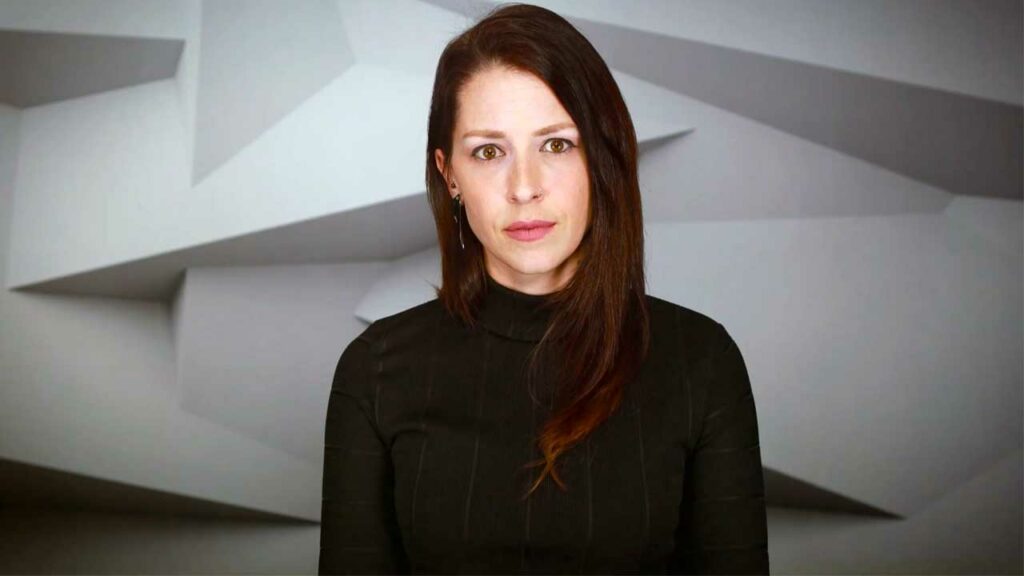




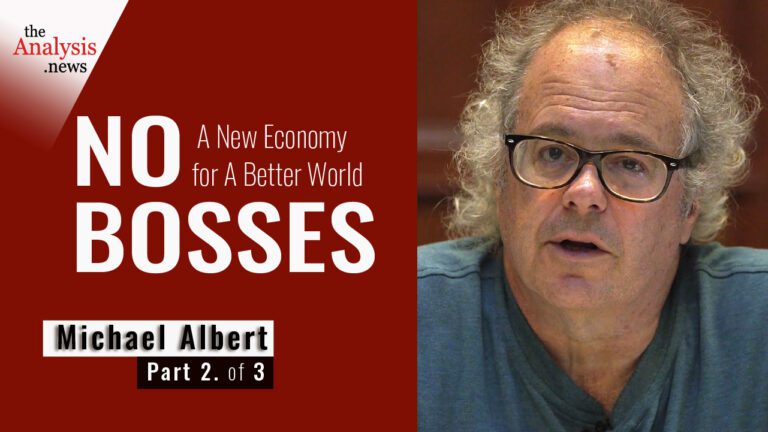


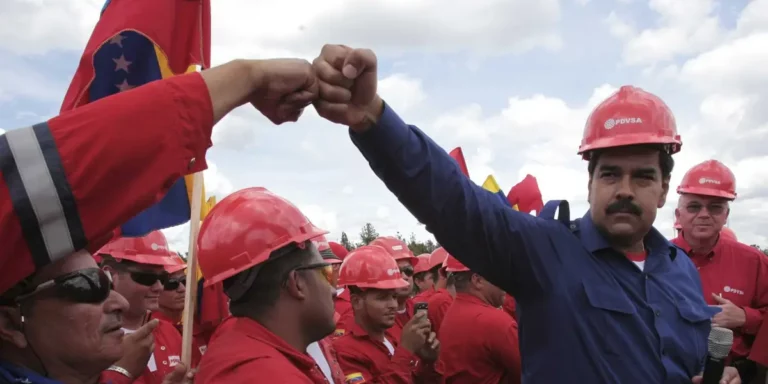
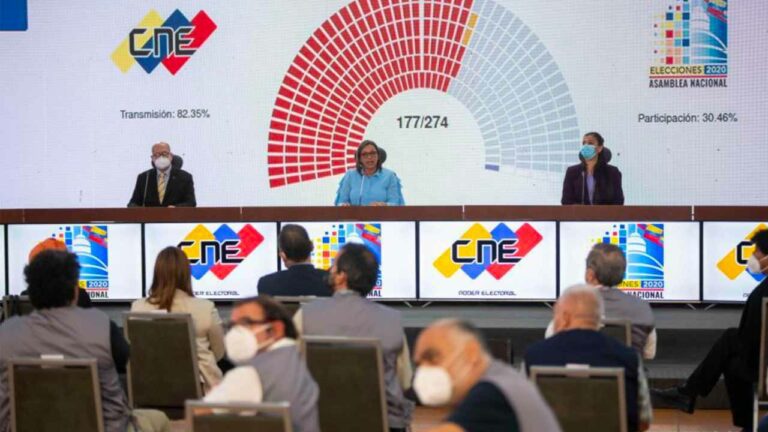
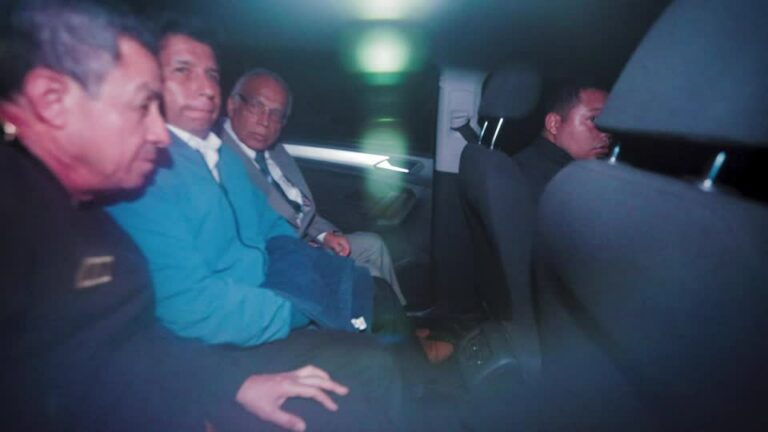
The left keep putting the cart before the elephant in the room.
If you want equality, a necessary precondition is for the vast majority of people to lose prejudice of other people based on looks, gender, religion, and even politics or identity…, which is something we had made great progress with.
Then along come the anti-racists hot on the heels of the identity politics people, still within memory of the privileged twats who dreamt up affirmative action;
End Result: A reinvigoration of prejudice and polarisation.
Well done !
Why not just accept that elimination of poverty, power and wealth extremes will likely fix most issues, albeit slowly.
Fight to win; not to be outraged.
Social security versus individual insecurity.
Once again the intelligence agencies are masters at using psyops regarding sex and indigenous issues.
Boric is like AOC. He is too immature for the role he is in and will surround himself with stale old liners.
But the US should pay very close attention for Pinochet style fascism is underway.
There is an international fascist movement and Boric will fall into the same trap that all the Pink Tide has.
By underestimating the extent of fascism, not neo-liberalism, the liberals lost.
For they are liberals and this is the problem.